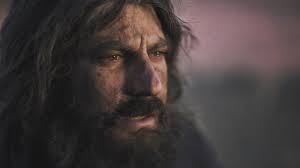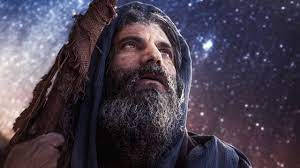🎬 His Only Son (2023)
- thaiduong
- January 7, 2025

🎬 His Only Son (2023)
Director: David Helling
Genre: Biblical Drama, Faith-Based
Screenplay: David Helling
Cast: Nicolas Mouawad, Sara Seyed, Edaan Moskowitz, Ottavio Taddei
Plot Summary
His Only Son is a deeply emotional and faith-based film that dramatizes the biblical account of Abraham’s test of faith as described in the Book of Genesis. The film focuses on the internal struggles, unwavering obedience, and ultimate trust in God that Abraham exhibits when asked to make the ultimate sacrifice: his only son, Isaac.
Act I: God’s Command
Abraham (Nicolas Mouawad), a devoted servant of God, receives a divine command to take his beloved son Isaac (Edaan Moskowitz) to Mount Moriah and offer him as a burnt sacrifice. The request shocks Abraham, as Isaac is the long-awaited child promised by God to fulfill His covenant to make Abraham the father of many nations.
Despite the incomprehensible nature of the command, Abraham resolves to obey, trusting that God has a greater plan. The journey begins with Abraham, Isaac, and two servants traveling toward the mountain.
Act II: The Journey and Inner Struggles
As the group travels through barren landscapes, Abraham is tormented by doubt, guilt, and anguish. He reflects on his journey with God, from the promise of Isaac’s birth to the miracles he has witnessed.
Isaac, unaware of his role in the sacrifice, questions his father about the absence of a lamb for the offering. Abraham’s cryptic response, “God will provide,” underscores his internal struggle as he wrestles with the paradox of God’s promise and His command.
The film delves deeply into Abraham’s psyche, exploring themes of faith, obedience, and the human cost of divine tests. Through flashbacks and dialogue, the audience gains insight into Sarah (Sara Seyed), Abraham’s wife, who remains at home, trusting in Abraham’s leadership and God’s will.
Act III: The Sacrifice and God’s Provision
The tension reaches its peak as Abraham and Isaac ascend Mount Moriah. Abraham prepares the altar and binds Isaac, his heart breaking with every step. At the last moment, as Abraham raises the knife, an angel of the Lord intervenes, stopping him.
God, pleased with Abraham’s unwavering faith, provides a ram caught in the thicket as a substitute for the sacrifice. The emotional climax reinforces the themes of trust and obedience, as Abraham’s faith in God is vindicated. The film closes with Abraham and Isaac returning home, forever changed by the experience, and with God’s covenant reaffirmed.
Themes and Analysis
- Faith and Obedience
The film centers on Abraham’s unwavering trust in God, even when faced with a command that challenges his understanding of morality and promise. - Sacrifice and Redemption
The story foreshadows the ultimate sacrifice in Christian theology—Jesus Christ—as the substitutionary ram reflects God’s provision for humanity. - Human Struggle and Divine Purpose
His Only Son humanizes Abraham, portraying his internal doubts and emotional turmoil while emphasizing his commitment to follow God’s will. - God’s Faithfulness
The narrative reinforces the belief that God’s plans, though often incomprehensible, are always for the ultimate good.
Performances
- Nicolas Mouawad: As Abraham, Mouawad delivers a raw and heartfelt performance, capturing the character’s anguish, strength, and unwavering faith.
- Edaan Moskowitz: Portrays Isaac with innocence and curiosity, providing emotional depth to the father-son relationship.
- Sara Seyed: As Sarah, Seyed brings quiet strength and vulnerability, reflecting the struggles of those left behind when great sacrifices are made.
Visual Style and Direction
David Helling’s direction emphasizes the stark beauty and isolation of the biblical landscape, using natural settings to immerse viewers in the world of Abraham’s journey. The film’s pacing is contemplative, allowing audiences to reflect on the gravity of the story and the emotions of its characters.
The cinematography captures the desolation of the desert and the grandeur of Mount Moriah, symbolizing both the internal and external challenges Abraham faces. A hauntingly beautiful score enhances the emotional impact, blending traditional Middle Eastern motifs with a modern cinematic feel.
Reception and Legacy
His Only Son has been praised by faith-based audiences for its reverent and intimate portrayal of a foundational biblical story. Critics have highlighted its thoughtful exploration of complex theological themes, though its slow pacing and meditative tone may not appeal to all viewers.
The film’s release sparked discussions about the relevance of Abraham’s test in modern faith contexts, particularly its themes of trust, sacrifice, and God’s faithfulness.
Conclusion
His Only Son is a deeply moving retelling of one of the Bible’s most profound stories. It combines emotional performances, breathtaking visuals, and thought-provoking themes to offer a cinematic experience that is both reverent and inspiring. For viewers seeking a film that challenges the heart and uplifts the spirit, His Only Son stands as a testament to the enduring power of faith and obedience.